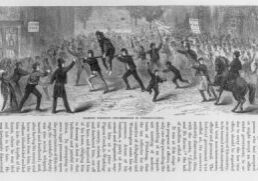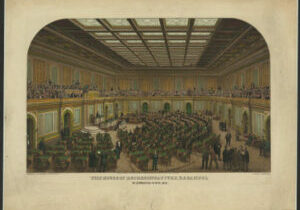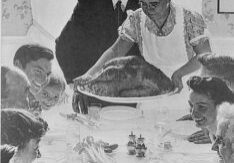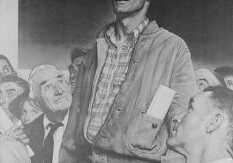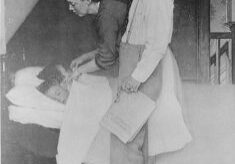Lesson Plans
Whiskey Rebels: Champions of the Common Man or Treasonous Traitors?
Students will analyze primary sources to investigate the causes of the Whiskey Rebellion in 1791-1794 and consider if the protest actions of the rebels were protected by the 1st amendment as well as if the federal government treated the rebels justly according to the 6th and 8th amendments. Next, students will rewrite a textbook description of this historical event to more accurately reflect multiple perspectives that they learned about through their analyses of primary sources. Then students will select a person from their neighborhood, city, or state that they think deserves a historic monument and create a persuasive proposal advocating for that.
U.S. Constitution: Continuity and Change in the Governing of the United States
Students analyze primary sources to examine continuity and change in the governing of the United States, studying the Constitution and Bill of Rights, investigating important issues that confronted the first Congress, and examining current congressional debates over similar issues. After, students explore the historical effects of early Congressional decision-making in the establishment of national holidays, brainstorm reminiscent modern-day holidays, and consider why we commemorate special days.
Speaking Out: Four Freedoms Then and Now
Students analyze a part of Franklin Delano Roosevelt’s “Four Freedoms” speech and use primary sources from the Library of Congress to gain historical context. Next, students explore sources from the Library to draw conclusions about the impact of the speech on American culture at the time. Students then write their own “Four Freedoms” speech, outlining four freedoms they believe Americans should keep front-of-mind today.
Securing Our Freedoms Beyond the Bill of Rights
Students analyze primary sources from the Library of Congress including Norman Rockwell’s “Four Freedoms” and “The Bill of Rights” to the U.S. Constitution. Students then identify amendments related to two of the four freedoms from the primary sources and then work in small groups to reach consensus and propose a new amendment to secure rights or freedoms not included in the Bill of Rights.
Find Your Freedom Beyond the Bill of Rights
Students analyze primary sources from the Library of Congress to identify freedoms, then review background information about the Bill of Rights to the U.S. Constitution. Next, students match the amendments related to some of the freedoms they identified through analyzing sources and then work in small groups to reach consensus and propose a new amendment to secure freedoms not included in the Bill of Rights.

